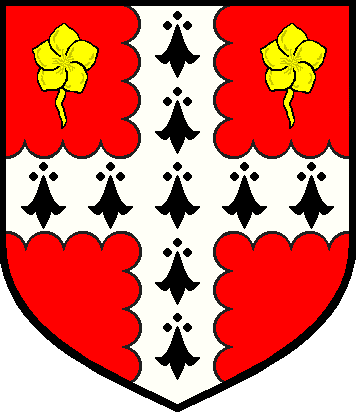 |
Mayfields of South Carolina |
 |
|
|
|
The Ancient English Law of Primogeniture By Phil Norfleet
PRIMOGENITURE CONCERNS REAL PROPERTY The old English Law of Primogeniture concerns the inheritance of "real property" only, such as land, buildings, etc. Under this law, the eldest living son (the "heir at law") inherited all the real property of the father if the father died intestate, i. e., without a will. If a will had been made, then the will's stipulations would govern. Since primogeniture was such a well known and standard procedure in the English speaking world, no specific mention of this transfer of title to the deceased's real property would usually be made in the court records concerning the estate. DIVISION OF PERSONAL PROPERTY Conversely, the personal property of the deceased, such as cattle, horses, furniture, notes due the estate, etc. was NOT subject to primogeniture and would customarily be equally divided among all the children, both male and female. The widow was entitled to her right of dower, meaning a right to one-third of the personal property during her lifetime. After her death the entire estate could be sold and the proceeds divided among all the heirs. Accordingly, even if Primogeniture was applicable, it still was necessary to make an inventory of the deceased's personal property, as soon as possible after death. The inventory would form the basis for the subsequent division of the estate, even if the final division might not be made until years later. Many genealogists, including many professionals, do not seem to fully understand this need for an inventory when Primogeniture is applicable. ABOLISHMENT OF PRIMOGENITURE IN VA, NC AND SC As a general rule, after the American Revolution, most states abolished both entail and primogeniture. [See Hyperlink] However, in Great Britain, my understanding is that the Law of Primogeniture continues to prevail in some areas, except in Kent where the Law of Gavelkind (equal sharing among all male heirs) is applicable. Primogeniture was abolished in Virginia, North Carolina and South Carolina as follows: In Virginia: In Virginia (VA) the entail was abolished in 1776; however, primogeniture was not eliminated in VA until 1785. The VA law, unlike the NC law of 1784, provided for equal sharing of real property among all the heirs - both male and female. [See C. Ray Keim, Primogeniture and Entail in Colonial Virginia, William and Mary Quarterly, Volume XXV, No. 4 (October 1968), Pages 550-551] In North Carolina: In April 1784, the NC Legislature, in lieu of primogeniture, substituted a scheme where, in the case of intestate death, the father's real property would be shared among all the deceased's male children. The female children were completely left out of the sharing. Several years later, in 1795, the NC law was again changed to allow the daughters to share equally with the sons. An excerpt from the 1784 law follows: "I. Whereas it will tend to promote that equality of property which is the spirit and principle of a genuine republic, that the real estates of persons dying intestate should undergo a more general and equal distribution than has hitherto prevailed in this State, "II. Be it therefore Enacted by the General Assembly of the State of North Carolina, and it is hereby Enacted by the authority of the same, That when any person shall die seized or possessed of, or having any right, title or interest in and to any estate or inheritance of land or other real estate in fee simple, and such person shall die intestate, his or her estate or inheritance, shall descend in the following manner, to wit: To all the sons to be equally divided amongst them, and for want of sons, to all the daughters to be divided amongst them equally, share and share alike, ... " [See Walter Clark, The State Records of North Carolina, Volume XXIV, Laws 1777-1788] In South Carolina: In South Carolina (SC), primogeniture was not abolished until 19 February 1791, with an effective date of 01 May 1791. The SC law of 1791 states the following concerning the disposition of the deceased's real property, if the deceased died without a will (intestate): "1st. If the intestate shall leave a widow and one or more children, the widow shall take one-third of the said estate, and the remainder shall be divided between the children, if more than one, but if only one, the remainder shall be vested in that one forever. "2nd. The lineal descendants of the intestate shall represent their respective parents and be entitled to receive and divide equally among them the shares to which their parents would respectively have been entitled had they survived the ancestor. ... " [See Thomas Cooper, Statutes at Large of South Carolina (first published 1839), Volume Fifth, page 162]
|